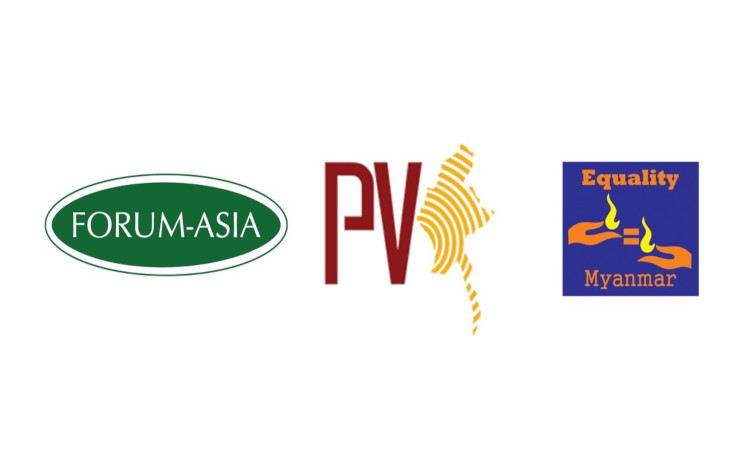
(Bangkok, 3 August 2018) – The Asian Forum for Human Rights and Development (FORUM-ASIA), together with Equality Myanmar and Progressive Voice, expresses grave concern over the independence of the newly established four-member Independent Commission of Enquiry. The only available information on the mandate of the body is a press release by the Myanmar President Office from 30 July. It outlines that the Commission ‘will investigate the allegations of human rights violations and related issues following the terrorist attacks by ARSA (Arakan Rohingya Salvation Army)’. The absence of any references to allegations of mass atrocity crimes by the armed forces of Myanmar or discriminatory laws and policies against minorities throws the impartiality of the Commission into question.
It is feared that the Commission has been conceived as an excuse to deflect existing efforts to gain and demand accountability, such as the UN Independent International Fact-Finding Mission on Myanmar and UN Special Rapporteur on Myanmar.
Despite efforts by the international community, the Government of Myanmar has rejected access to the country for the UN Independent International Fact-Finding Mission on Myanmar and the UN Special Rapporteur on the situation of human rights in Myanmar, Yanghee Lee. The establishment of a domestic Commission of Enquiry in such a climate of non-cooperation, secrecy and lack of transparency undermines the body’s independence.
Domestically, the Myanmar Government has a track record of failed investigations. Past mechanisms have neither been credible nor genuine. Most recently, in 2017, an investigation conducted by the Myanmar Army concluded that allegations of military abuses in Rakhine state were unfounded – contrary to mounting claims by international experts.
While the importance of accountability has been widely recognised as essential, the government press release makes no mention of this and rather projects the Independent Commission of Enquiry as part of national initiatives for ‘reconciliation, peace, stability and development’ in Rakhine. The conspicuous absence of any reference to accountability raises serious concern over the credibility of the Commission.
Since August 2017, over 700,000 Rohingyas have been pushed out of Myanmar to seek refuge in neighbouring countries, such as Bangladesh, China, Malaysia, and Indonesia, through clearance operations by Myanmar security forces, amid allegations of serious rights violations, including killings of civilians, sexual violence, and the burning down of entire villages. UN experts have described this as ethnic cleansing and have said that there are strong reasons to suspect genocide.
Following the situation in Rakhine State, allegations of mass atrocity crimes have surfaced in Kachin and Northern Shan States as conflict intensified in recent months. Humanitarian aid for internally displaced persons has been blocked, and torture, rape, and extrajudicial killings have been reported. This is a clear indication of the military’s total disregard for accountability.
The Government’s efforts can be considered credible only when key preconditions for inclusiveness, transparency and accountability are met. This should include granting full access to all parts of the country for all UN investigations into human rights violations and mass atrocity crimes; genuine efforts to address root causes and solutions including legal and constitutional reform and the amendment of the 2008 Constitution; an end to ongoing human rights violations across the country including in Rakhine, Kachin and Northern Shan States; and the recognition of the identity and citizenship of the Rohingyas.
We call on the international community to not endorse the Myanmar Government’s window dressing initiatives. The international community should instead intensify efforts towards accountability. It is imperative that the UN heeds calls made by its own experts – for Myanmar to be referred to the International Criminal Court, and for creating an interim UN mechanism to collect and document evidence as well as monitor and report on the situation.[1]
***
For a PDF version of this statement, please click here.
For more information, please contact:
– East Asia and ASEAN Programme, FORUM-ASIA, [email protected]
[1]https://news.un.org/en/story/2018/07/1013932, https://news.un.org/en/story/2018/06/1013212




